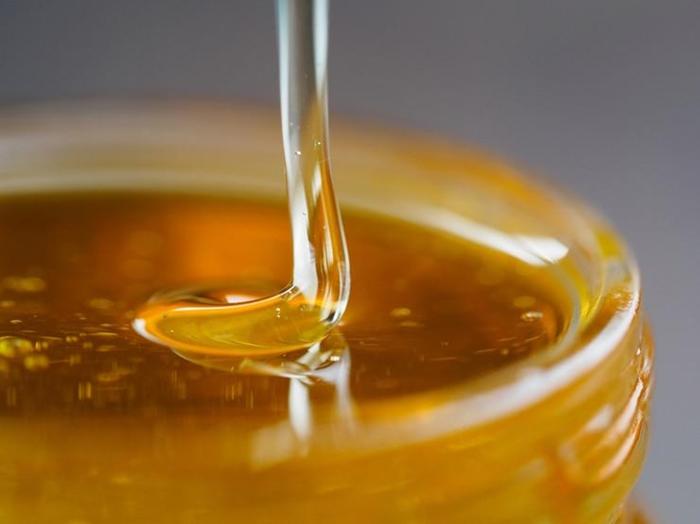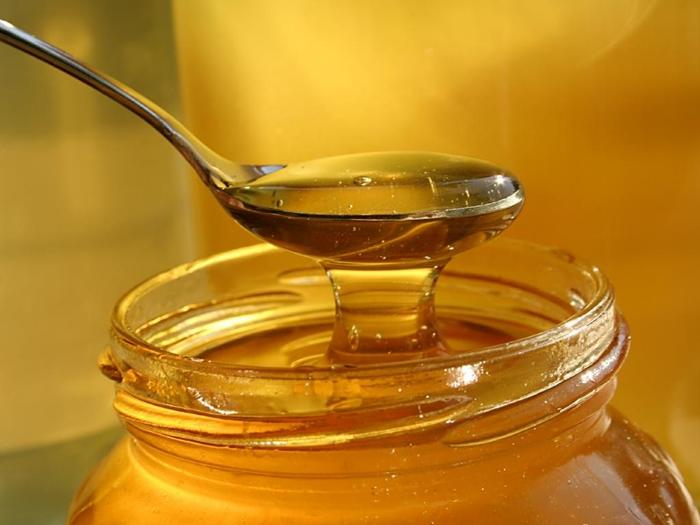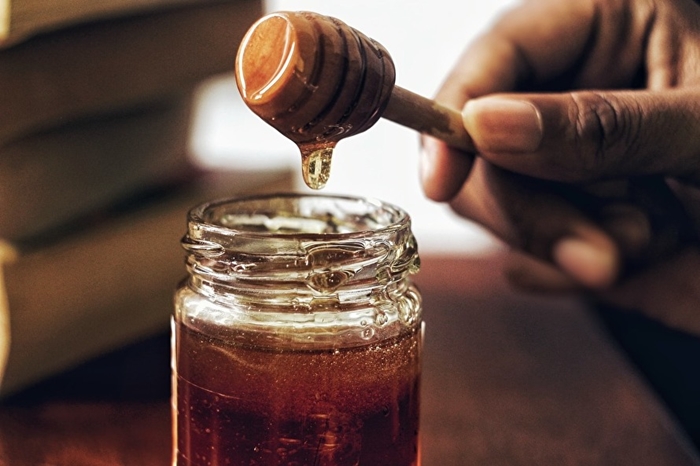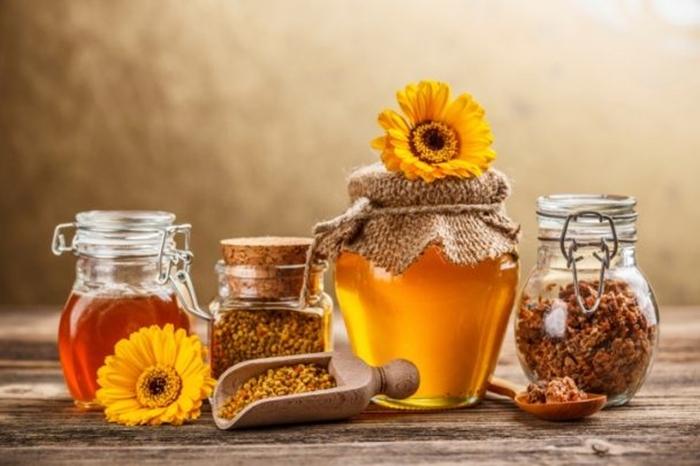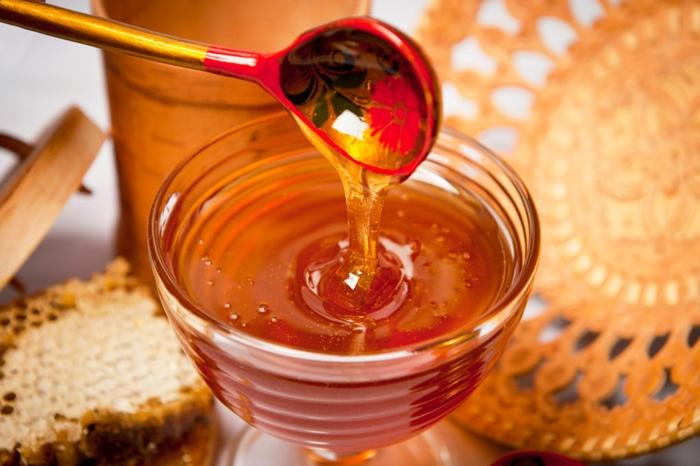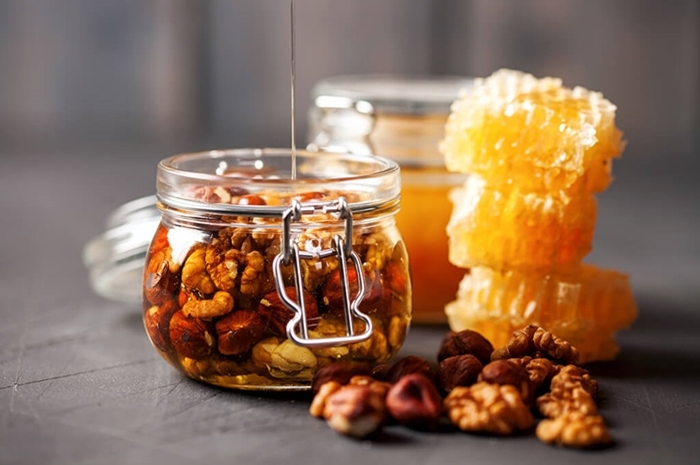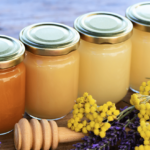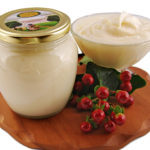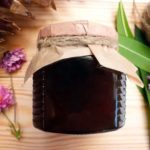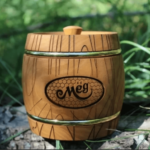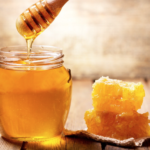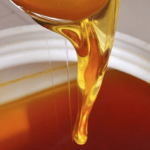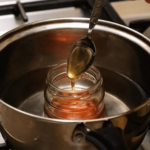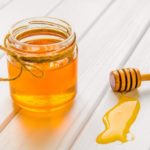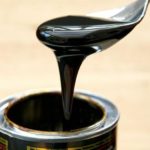The main advantage of honey is that it is not only a delicacy, but also a healthy product. Therefore, the question of quality is not an idle one. “Authenticity” can be determined by various criteria: taste, consistency, color, smell. Sometimes buyers are concerned about the problem - why homemade honey does not smell like honey. Because specific or foreign odors may indicate that the product is counterfeit.
Why does honey smell?
Volatile substances (esters, alcohols, aldehydes) give the honey product its peculiar smell.During long-term storage, aromatic substances evaporate, and the smell usually appears when opening a container with a treat or when adding sweetness to hot tea.
But sometimes it's disappointing when the product smells like urine. The reasons for this may be different: the substance was heated several times, poorly stored. Sometimes even a fresh product can give off a slight smell of manure. This effect is observed if unripe honey that has fermented was pumped, or bees collected pollen from plants that have a specific odor (black maple).
How to distinguish natural honey differently
External evaluation of a product is often not enough to ensure its naturalness or the absence of foreign additives. There are several popular ways to check the quality of sweets at home:
- if a portion of “pure” honey is heated in a 50% alcohol solution, the product will almost completely dissolve. The appearance of precipitation, cloudiness of the solution means the presence of impurities (most often starch, grape sugar);
- a drop of honey is sprinkled with starch. If the powder retains the appearance of a white “cap,” it means that the treat does not contain foreign impurities. Unnatural additives will most often react with starch;
- a small portion of sweets is placed on paper. The product, diluted with water, will form a liquid stain on the paper surface or even leak through the sheet. And the natural sweetness will “stay unchanged”;
- Pure honey, without impurities, turns into a clear liquid when heated. Cloudiness of the heated product indicates the presence of additives;
- the formation of foam on the surface means that the nectar was unripe or it has fermented;
- A few drops of iodine are added to the product diluted with warm water.The appearance of a blue tint in a substance means the presence of starch.
When evaluating a delicacy, you need to take into account the possibility of the presence of particles of wax, pollen, propolis or beebread.
The smell of the fresh product is unique, even somewhat pungent, and the taste contains tart notes.
Foreign odors
The treat may smell atypical. The presence of unpleasant odors can be due to several reasons:
- the presence of the smell of manure can be explained by the close location of the apiary to the farms, but honey absorbs foreign aromas well;
- Some beekeepers observed that bees fed on caramel and molasses from tanks stored on railroad tracks. Naturally, under such conditions, the honey product will smell like caramel;
- If you dip a hot knife into a treat and remove it, there will be nothing left at the tip. Falsified sweetness forms a burnt product at the tip;
- The aroma of unripened honey has light notes of sourness. This delicacy does not store well;
- Sometimes the aroma contains peculiar medicinal notes. This situation occurs when moth frames are treated with chemicals or when bees are treated shortly before nectar flows.
What real honey should smell like
The aroma of the delicacy depends on several factors (weather conditions, abundance of flowering), but most often it is determined by the type of plants from which the bees collected nectar:
- buckwheat and coriander flowers add spicy notes to the sweetness;
- the product acquires a specific smell thanks to pollen collected from flowering chestnuts;
- subtle aromatic notes to the nectar are provided by flowering linden, acacia, and clover;
- Meadow honey, May honey, and herb honey have a rich floral aroma.
When choosing a treat, you need to take into account that most often the sweetness does not have a pronounced aroma. A substance stored in an open container quickly loses its unique honey aroma.
Beekeepers provide consumers with a choice of sweet products to suit every taste. In order not to make a mistake with your purchase, you need to carefully choose the sweet, taking into account its characteristics. If in doubt, it is advisable to conduct a small test of the treat at home.

